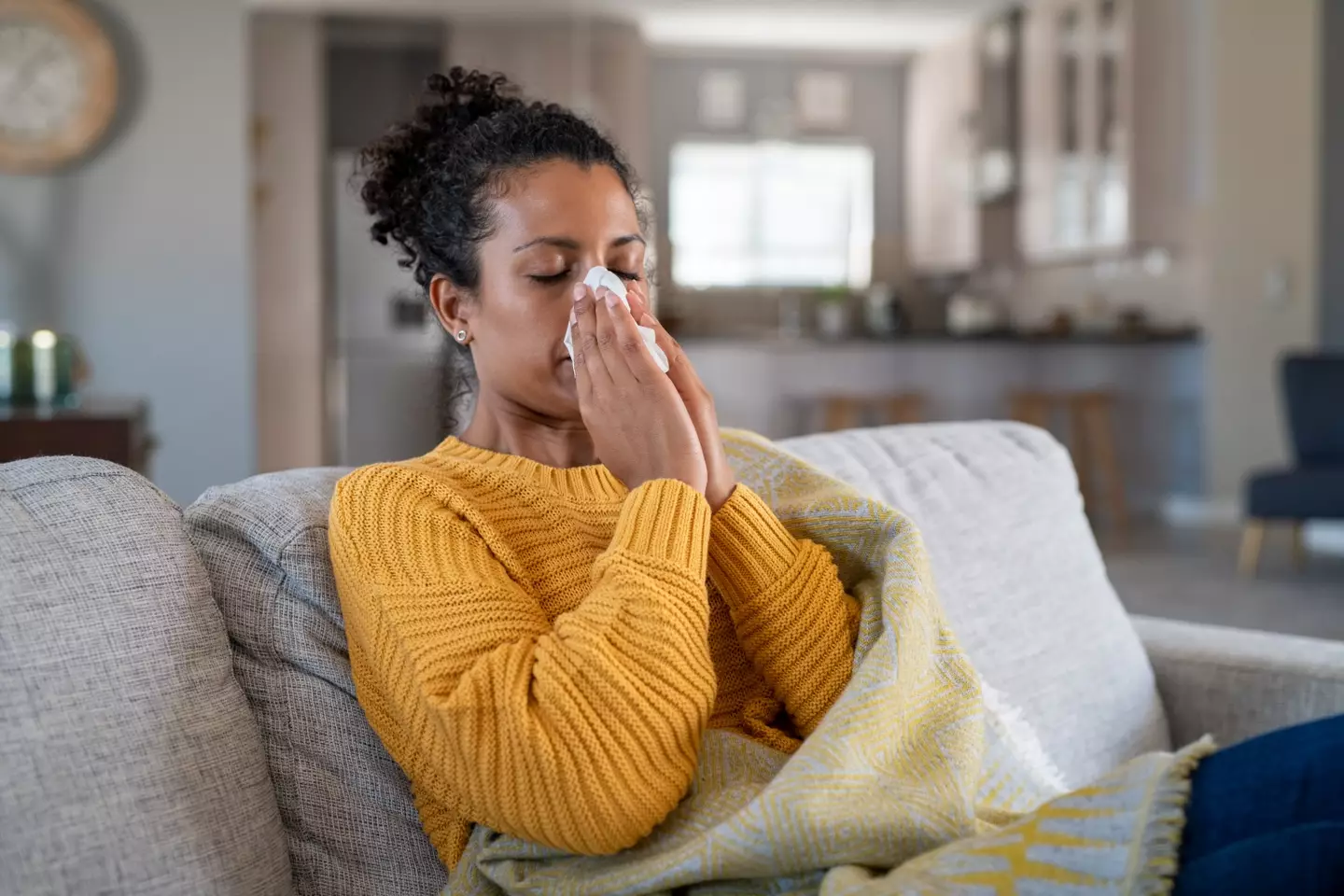
Brits have warned to look out for two new symptoms that could mean they have the latest strain of Covid-19.
In recent weeks, the UK has seen positivity rates for Covid-19 increasing in the run-up to Christmas and a strain of the reported 'Pirola' variant - JN.1 - has been rapidly spreading across the country.
The UK Health Security Agency sub-categorised it early last month (4 December) after its 'increasing prevalence within the UK and international data'.

Advert
The virus has since produced two new symptoms according to the latest data from the Office for National Statistics.
Usual symptoms previously reported by people who contracted Covid, included a high temperature, a blocked or runny nose and headaches.
The two new ones reported by sufferers now include trouble sleeping and anxiety as well.
In the most recent update of the Winter Coronavirus Infection Study, it said: "There has been an increase in prevalence of SARS-CoV-2 in England and Scotland during the two weeks leading up to 13 December 2023."
Advert
It also added there were fewer people reporting a lack of taste and smell.
Professor of innate immunity at the University of Cambridge, Clare Bryant, states that people have become 'complacent' about Covid - despite 'lots of people having it at the moment'.
"There are lots of other germs around as well - flu is circulating and other colds," she said.

Advert
Professor Nicolas Locker, a virologist at the Pirbright Institute, went on to add: "We're going to see a fairly large rise in cases this winter.
"Not because the newer JN.1 sub-lineage is more problematic or severe, but because we're losing our defences - protections afforded by our last set of boosters, and our immunity is waning."
According to the NHS, typical Covid-19 symptoms can include:
- a high temperature or shivering (chills) – a high temperature means you feel hot to touch on your chest or back (you do not need to measure your temperature)
- a new, continuous cough – this means coughing a lot for more than an hour, or 3 or more coughing episodes in 24 hours
- a loss or change to your sense of smell or taste
- shortness of breath
- feeling tired or exhausted
- an aching body
- a headache
- a sore throat
- a blocked or runny nose
- loss of appetite
- diarrhoea
- feeling sick or being sick
While most people start to feel better within a few days or weeks of their first Covid-19 symptoms and make a full recovery within 12 weeks, for some people, it can be a more serious illness and their symptoms can last longer.
Advert
If you have any concerns, you can always give 111 a quick ring for some advice.